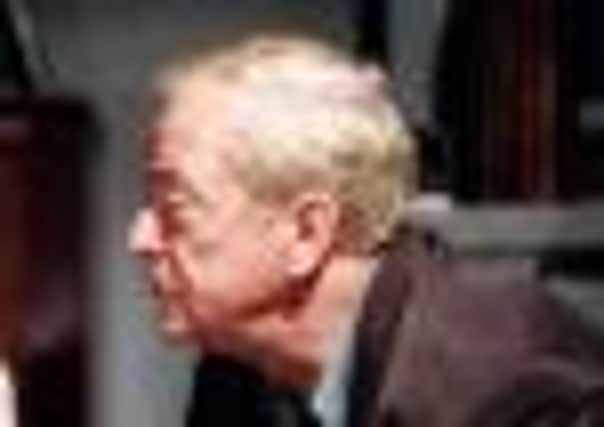Michael Caine at 80: The secret of his success


“I’ve never even told my wife what it is. It is my one last secret.” He will only say that it was a “very sad incident”. Into every life – and Michael Caine who turns 80 today has enjoyed a long one – some rain must fall, but as a polished raconteur over the years he’s told us about many such showers. Born on 14 March, 1933, as Maurice Joseph Micklewhite, the son of a fishmarket porter and a cleaning woman, he was an evacuee from London’s East End during the Blitz and housed in the countryside with a couple who beat him and locked him in the cupboard under the stairs, decades before Harry Potter made such bijou accommodation fashionable.
It’s why, for many years he was patron of the NSPCC, and said he would happily pull the gallows lever on paedophiles, but the memory isn’t that. Nor is it the time his mother refused to accompany him to the premiere of Zulu as she thought her lowly upbringing would embarrass him in front of his new friends, so he took along a girl as his date only to walk the red carpet and spot his mum by the crash barriers with the public. She had taken the bus.
Advertisement
Hide AdThere is one secret that is only now beginning to be shared as he enters his ninth decade: Michael Caine is a brilliant actor. For too long his true talent was camouflaged by his public persona, which is why some think he can only ever do cockney accents, despite the fact his big break in Zulu came when he played against type as an upper-class officer. In fact, the producer thought him so effeminate in the role of Lieutenant Broomhead that he cancelled his seven-year contract on the grounds that no-one would wish to see him again. A lack of sex appeal, or one directed to the wrong audience, dogged him in the early days of filming The Ipcress File, in which Harry Palmer wears heavy black glasses and cooks dinner for a date. The American studio thought no action hero would wield a saucepan, a point on which the author of the original book, Len Deighton, who was an experienced cook and Caine both disagreed. The film and the glasses later led to an invitation to dine with Harold Lloyd: “You’re the first guy since me I’ve seen wearing glasses who’s playing the lead in a movie.”
Michael Caine got his stage name from a movie – The Caine Mutiny was playing across the road from the phone box in which he was standing listening to his agent say that Equity needed a new name – and he repaid the favour by making as many of them as possible, an average of three a year during the 1970s. He says this was driven by a poor boy’s desire to become rich. He said of Jaws: The Revenge: “I have never seen the film, but by all accounts it was terrible. However I have seen the house that it built, and it is terrific.”
The problem was the stench from The Magus (1968), The Swarm (1978 and Ashanti (1979) enveloped the likes of The Man Who Would Be King (1975) in which both he and Sean Connery came up smelling of roses – as Caine as Peachy Carnehan said in the film: “Now the problem is how to divide five Afghans from the three mules and have two Englishmen left over.”
Yet today his versatility is celebrated and he has become the good luck totem of arguably the world’s most successful director, Christopher Nolan who cast him as Alfred the butler in The Dark Knight trilogy as well as in Inception and The Prestige. Is there any other British actor who could do comedy as sharp and physical as Dirty Rotten Scoundrels (1988) and then 20 years later chill audiences with a cocktail of menace and suppressed rage as Harry Brown (2009) in which a Korean veteran (a conflict in which Caine was almost killed) seeks vengeance against the yobs of broken Britain? For many years Caine was chippy about the class system until friends say the Queen sliced that off his shoulders with her sword when she knighted him in 2000. Today happily married for 40 years to Shakira, a former model he first spotted in a Maxwell House advert, Caine exudes a basic decency and approachability.
While he has long argued against a rate of tax higher than 50 per cent – “50 per cent I’ll pay, it’s fair. 51 per cent I’m off” – and was no fan of Gordon Brown to judge by one interview, as he was a Scot ruling the English, Caine has a social conscience attuned to the times. He ditched his beloved Rolls Royce and replaced his Rolex for a cheap market-stall timepiece on the grounds that he felt uncomfortable with ostentatious displays of wealth during such straitened times.
Yet few would begrudge him the rewards of a sterling career, at least no-one who laughed at The Italian Job - “you’re only supposed to blow the bloody doors off!” - or shed a tear when as Dr Wilbur Larch in The Cider House Rules he tells his brood of orphans in a perfect accent: “Goodnight, your princes of Maine, you Kings of New England.”